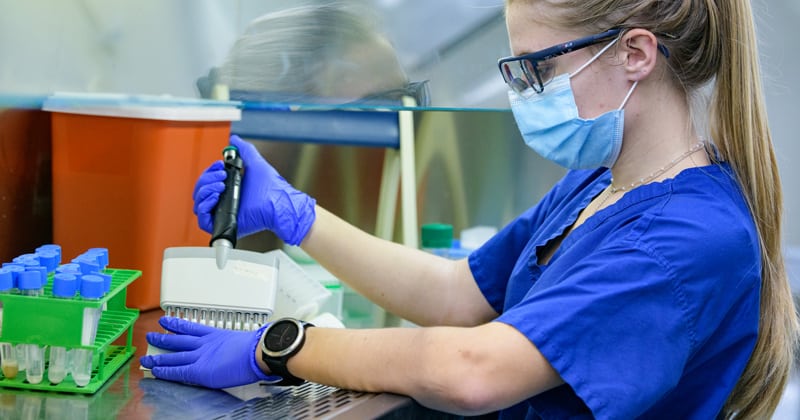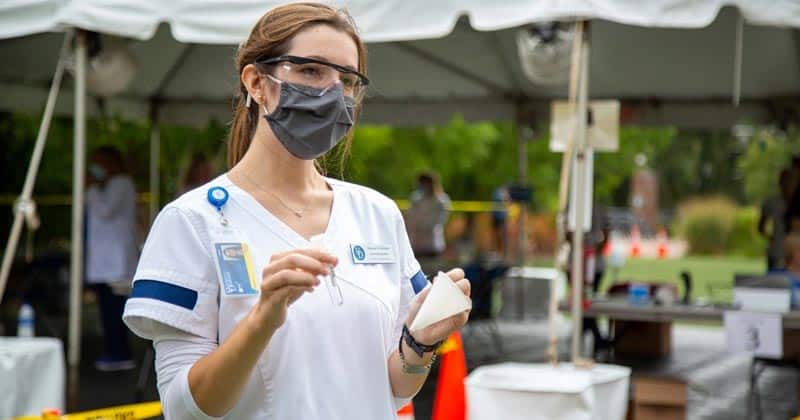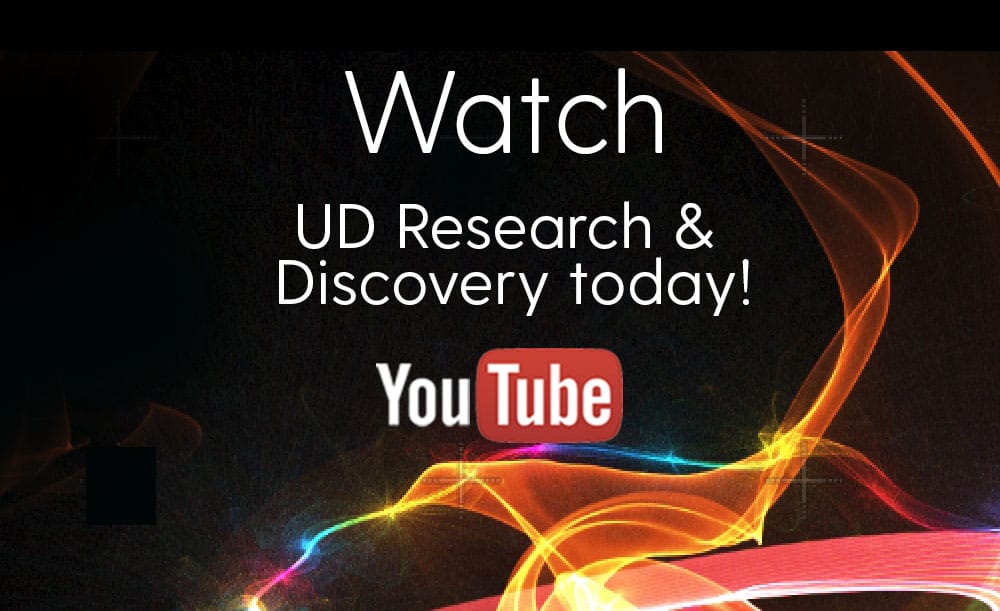RESEARCH
DISCOVERY
A Blog Devoted to UD Innovation, Excellence & Scholarship
COVID-19
Animal Science vs. Coronavirus
Seven UD researchers and the director of Delaware’s Division of Public Health offered a 90-minute update on what we’ve experienced, what we’ve learned and what we face next, as the world marks one year since the COVID-19 virus was declared a global pandemic.
When the COVID-19 pandemic struck Delaware a year ago, most people never heard of a coronavirus, let alone the health implications of this nasty adversary. COVID-19 is new, caused by a novel coronavirus not previously seen in humans, but, down at the southern end of the University of Delaware campus, a group of staff and faculty knew all about similar diseases in animals. Long before coronavirus was the most despised word on planet Earth, scientists in UD’s Department of Animal and Food Sciences (ANFS) had a long relationship with 2020’s villain.
As these UD scientists knew all too well, severe acute respiratory syndrome coronavirus 2 (SARS-CoV-2) — the virus that causes COVID-19 — is only one of many members of this family of viruses.
The department’s expertise not only helped UD research and test 2020’s most unwelcome party crasher, but also quickly integrated COVID-19 into its curriculum.
The testing
The department’s biosafe laboratories and skilled scientists have made the University a premier facility in animal health testing. UD’s Charles C. Allen, Jr. Biotechnology Laboratory in Newark and Lasher Laboratory in Georgetown comprise the University of Delaware Poultry Health System (UDPHS) — making ANFS part of the National Animal Health Laboratory Network; across the U.S., select institutions like UD offer localized testing for major animal diseases with protocols designed by the U.S. Department of Agriculture National Veterinary Services Laboratory.
So, what does that have to do with human health? Well, ANFS scientists like Provost Robin Morgan, College of Agriculture and Natural Resources Dean Calvin Keeler and Senior Scientist Brian Ladman spent decades studying and testing for viruses, including many with human health implications.
“UDPHS is capable of handling high throughput testing,” said Ladman. “We had the training, equipment, infrastructure and the scientists to handle more than 1,000 virus tests each day. And, in the avian world, swabs are usually oral swabs, so it was a natural transition for us to do COVID-19 testing.”
After pursuing and receiving national accreditation for human health diagnostic testing through Clinical Laboratory Improvement Amendments (CLIA), Allen Lab became ground zero for COVID-19 testing of UD employees and students.
It’s quite a home team of Blue Hens battling against this novel coronavirus, including Ladman, Amy Anderson, Bri Ames, Erin Bernberg, Marcy Murphy and Lauren Sauble. The six staff and faculty members have a collective 119 years of service to the University and a combined 11 UD degrees. They’ve conducted more than 30,000 COVID-19 tests since September, turning many tests around in only a few hours.
COVID-19 saliva tests are not the only tests that ANFS is conducting. The new Center for Environmental and Wastewater-based Epidemiological Research (CEWER), profiled on UDaily in January, includes testing wastewater samples to understand the prevalence of COVID-19 in New Castle County and on the UD campus.
The teaching
Given the hands-on careers in the animal and food sciences, ANFS was determined to maximize live, in-person instruction safely throughout the 2020-2021 academic year. Animal science, animal biosciences, pre-veterinary medicine, and food science majors greatly benefited from the department’s resolve. The department is teeming with researchers with experience in infectious diseases and microbiology — an invaluable resource for future laboratory scientists, veterinarians and animal industry professionals.






